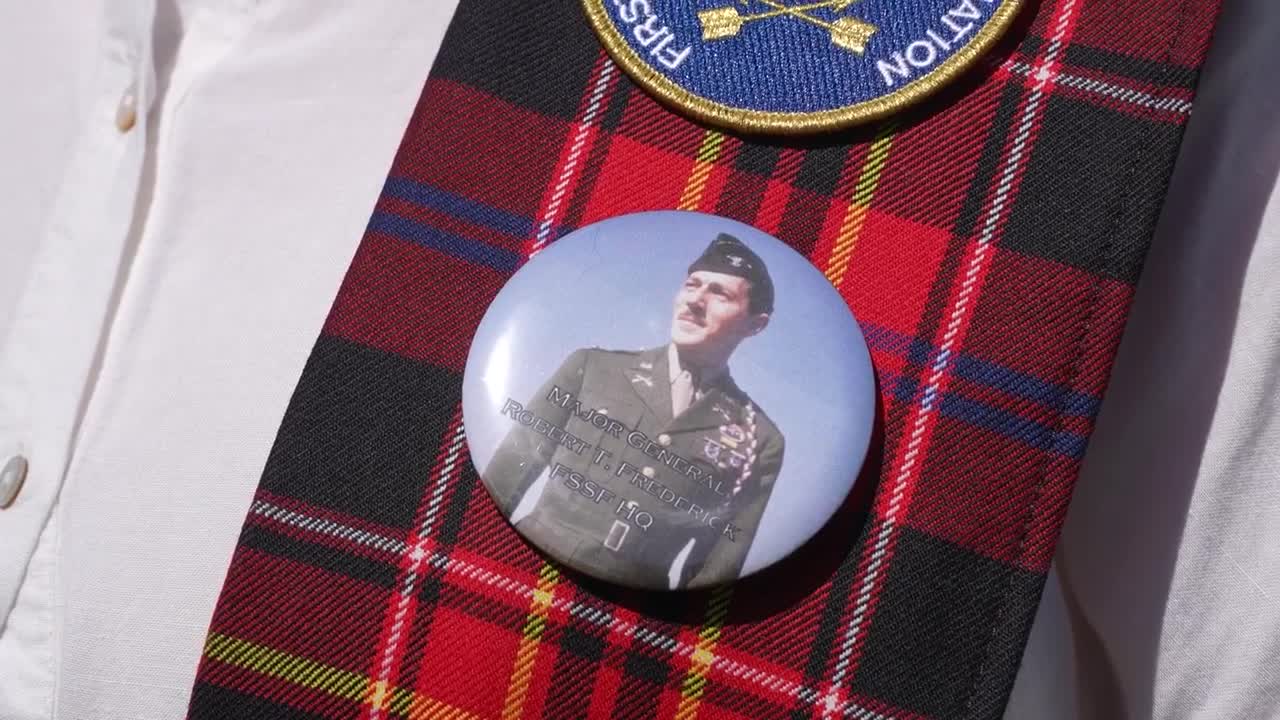HELENA — A new monument at the Montana State Veterans Cemetery not only honors the hundreds of men who specialized in dangerous missions during World War II, it also returns a piece of them here to Helena, where they trained at Fort Harrison.

"A lot of the force members found their wives here, a lot of the families are based here, [and] some of the children were born here," said Jennifer Parra.
She is the outgoing president of the First Special Service Force Association and the great-grand niece of Maj. Gen. Robert T. Frederick, who trained and led the force.

Parra was born after Frederick died, but she has heard stories from his daughter.
She said, "When soldiers would pass by, he would have her step up on this platform and put her hands on his shoulders to cover up his stars, because he didn't want the other soldiers to feel that they were obligated to salute him."

Parra started attending First Special Service Force (FSSF) reunions in 2014, which are open to soldiers who were in the force, their relatives, and anyone who would like to learn more about what they did.
The reunions are how she got to know Linda Paquette, who is the daughter of a FSSF soldier and the incoming Canadian vice president of the First Special Service Force Association.

"I just want to make sure to keep continuing to honor my father and to be part of this family so we don't forget what they've done for both countries," Paquette said.
Parra is from the United States, and Paquette is from Canada, and like their relatives, the force brought them together.

"They were stronger together," said Parra. "When they came together, they were a force to be reckoned with."
Paquette said, "It doesn't matter where we come from, we're a family."
One member of that family traveled all the way from Italy.

"The first special service force was trained for mountain warfare, and that made a difference in the battlefields where they were," said Luciano Bucci.
He's from Venafro, Italy, one area that was destroyed during World War II and liberated with the help of FSSF.
He is the president of a World War II museum there.

"In Italy, we are grateful for what they did, and the family related to them must understand that in Italy, they have friends," Bucci said.
His grandparents endured the war, with his grandfather being an Italian soldier.
"He spent two years in a prisoner camp in Germany," said Bucci. "He escaped by walking from Germany to Italy - just by walking."
The new monument in the cemetery is a reminder of the men who served and the lives they changed.

Bucci said, "Freedom - it costs a lot and people don't understand freedom until they've lost it."
You can find more information about the First Special Service Force Association here and about a recent anniversary of the force here.





